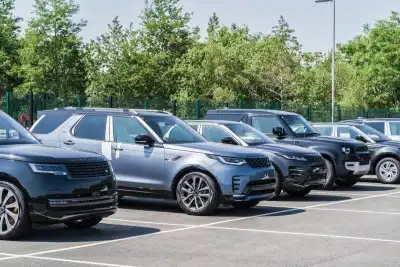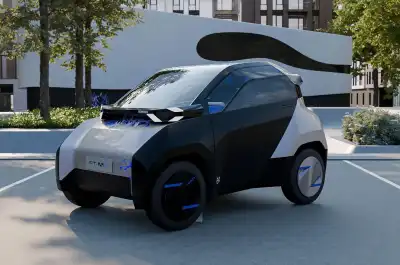
For the first time this year, electric vehicle (EV) sales have surpassed government targets, with 23% of all new cars sold in August being fully electric, according to official figures. Data released by the Society of Motor Manufacturers and Traders (SMMT) shows that out of 84,575 new cars registered last month, 19,113 were EVs. This milestone marks the first time EV sales have exceeded the Zero Emission Vehicle (ZEV) mandate’s requirement of at least 22% of new registrations.
However, this achievement is overshadowed by allegations that manufacturers are manipulating the market by limiting the availability of petrol cars to boost EV sales and avoid fines associated with the ZEV mandate. The SMMT noted that the overall new car market was stable in August, with a slight decline of 1.3% in registrations year-on-year, marking the first drop in growth for over two years.
Fleet purchases continued to drive the market, representing 60% of registrations last month, while private buyer registrations remained nearly unchanged, growing by just 0.2%. Despite the overall market stability, the significant rise in EV sales—up 10.8%—is seen as a turning point for the sector, the highest since December 2022.
Green groups and industry insiders attribute the surge to aggressive discounts and a wider range of new EV models. Nevertheless, there are claims that some car manufacturers are intentionally restricting the supply of petrol and hybrid cars to meet the ZEV mandate’s 2024 target and avoid hefty fines. For instance, Robert Forrester, CEO of Vertu Motors, accused manufacturers of rationing petrol and hybrid vehicles to push EVs and comply with government rules.
Richard Peberdy from KPMG added that some manufacturers are exploring ways to meet the target, such as offering discounts or restricting petrol vehicle sales. The SMMT reported a 10.1% drop in petrol registrations last month, contributing to the overall market decline.
Despite the positive news for EVs, the ZEV mandate—which requires a 22% share of new registrations to be zero emission in 2024 and increases annually—has faced criticism. The transition to EVs is challenging due to high prices, limited charging infrastructure, and other barriers. As of mid-2024, EVs represented only 16.6% of new car sales, still short of the mandated targets.
While some manufacturers, like BMW and Hyundai, are ahead of the ZEV targets, others are struggling and employing strategies such as limiting petrol car deliveries to improve their EV market share. Volvo recently adjusted its plans, aiming for 90-100% of its sales to be either pure electric or plug-in hybrid by the end of the decade, citing challenges with charging infrastructure and shifting government policies.




